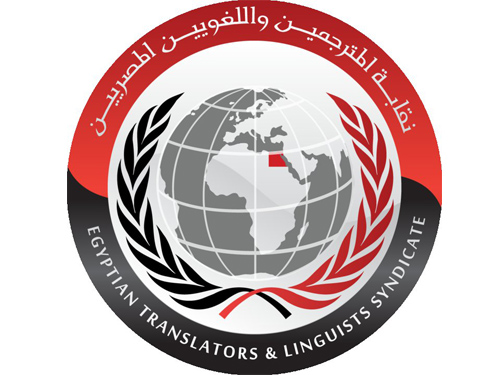
Three years ago, several groups of translators working in the literary, journalistic and business fields took the first step to establish their first official syndicate. They obtained the required approval from the parliament, but still could not proceed, as the security mentality of the Mubarak regime opposed the formation of professional associations.
They did not lose hope, though, and continued to raise support for their cause. They started a Facebook group to link with more translators and linguists, and then moved from the virtual space to the ground, holding meetings with thousands of translators across Egypt and working through the tedious legal procedures.
"Translation is a vital profession to the Egyptian economy,” says Mohamed Fadel, the executive manager of the Egyptian Translators Syndicate, which is currently being formed. “Most companies across sectors depend on translators to improve their performance. But these translators, who exceed 20,000, do not have an organization to protect their rights."
Since the 25 January revolution began, the groups have been back at work. They are, however, waiting for the political situation to calm down before they make an official request to avoid common accusations of favoring the interests of specific groups over the welfare of the country, explains Fadel.
But, some oppose the idea for different reasons.
Talaat al-Shayeb, a translator and adviser at the National Center for Translation, sees no validity in establishing a syndicate, as there are no full-time translators, he argues. “Most great translators, historically, did not work full-time as such. They worked at other organizations that provided them with social safety nets.”
A translation branch at the Egyptian Writer’s Union already exists and fulfills the role of a syndicate, he adds. “There is no real need, especially that we [the National Center for Translation] pay translators the highest rate offered in the Arab world.”
A more sound argument seems to be the vagueness of the word “translator.”
“We still cannot reach consensus on how we define a translator,” says Shayeb. “Not every graduate of the Faculty of Arts or one who has native fluency in a foreign language can be considered a real translator. Translation is about transferring the full meaning and spirit of a text."
"If we are to accept all [of those working in the translation field] into a syndicate, we are following the model of existing syndicates and unions with all its problems,” says Shayeb, citing the lack of clear criteria at various syndicates and how many members have no real production that enriches their field of specialization.
Unlike Shayeb, Ahmed Abdulatif, a freelance translator who has translated several works of the 1998 Nobel Laureate Jose Saramagu, strongly supports the syndicate as “we suffer when dealing with private publishing houses, where there is no fixed payment rate.”
“Government organizations become our only resort; and they cannot accommodate the large number of young translators that continues to rise every year,” explains Abdulatif. “Furthermore, state institutions prefer to work with senior translators."
Advocates of the syndicate, like Abdulatif, believe that it posits a win-win situation, guaranteeing a standard of quality for publishers, as well as decent payment for translators. It can also provide training for early career translators, enabling a new generation to emerge, particularly in unpopular languages like Chinese.
But the performance of various professional syndicates in Egypt has led some to lose faith in such organizations. “Why would a translators’ syndicate be any different?” asks Shayeb, before adding that “a good translator improves his skills on his own. This has been established from the very beginning of the translation movement with Refaa al-Tahtawy [who set up the first translation department in Egypt in the early 19th century]."
Fadel, however, sees the inefficiency of many syndicates as a thing of the past, an outcome of a particular political context that is gradually changing. “The Translators Syndicate will invest in its members, and we are now supposed to carry out our project with no harassment from the political regime."
Translators working in various sectors still need an organization to protect their rights, continues Fadel. “That role is neither fulfilled by the Writers Union nor the National Center for Translation. In both cases, you have to be an established translator to join.”
Translators should not be judged solely based on the number of books they have worked on, he continues. “There are important translators working at research centers, academia and media organizations, who enrich our knowledge of what happens around the world on a daily basis.”
“Their rights should be protected. Plus our project aims at providing quality services to academic organizations. We hope to contribute to a real scientific renaissance," adds Fadel, citing the shortage of scientific translations at the National Center for Translation.
Now Fadel and his companions are planning a conference to announce their syndicate after the parliamentary elections are completed, hoping that they will obtain the final approval to officially launch their syndicate.




